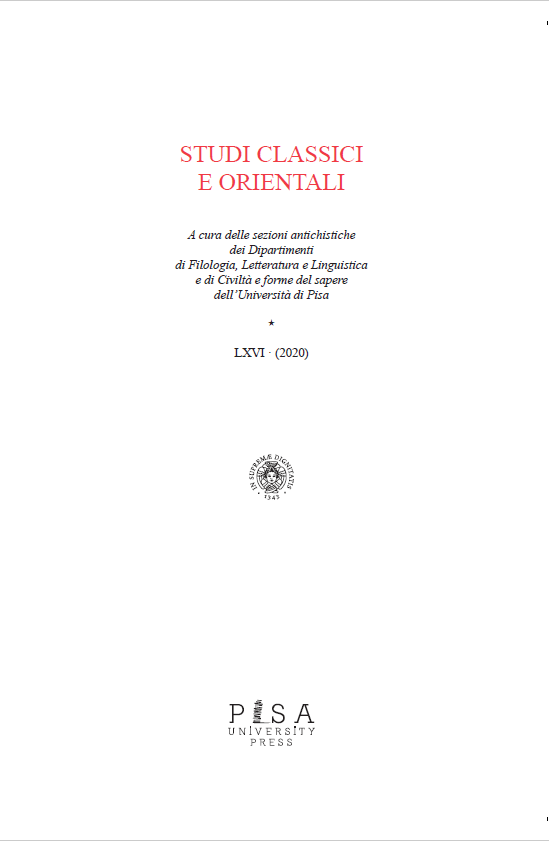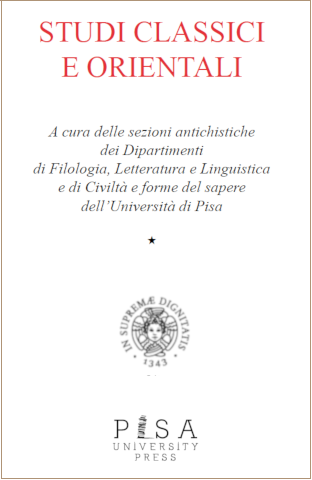The Imperial Qualities in Roman Greece (31 BC – AD 235): The Evidence and a First Assessment
Parole chiave:
Roman Greece, imperial qualities, imperial ideology, eastern provincials, imperial cultAbstract
The imperial cult in the Roman provinces is a major subject in current scholarly works on religion in the Roman world. Scholars so far have perhaps undervalued an interesting aspect: not only was the emperor himself worshipped, but also the various qualities of the emperors were objects of worship (e.g. ‘Pietas Augusti’, ‘Providentia Augusta’). The latter are often regarded as merely subordinate to the ‘main’ imperial cult. Yet, qualities had a rich past in Greek religion as well as in the Roman political tradition. This paper aims to examine how events throughout the empire were interpreted through the worship of imperial qualities in Roman Greece. Did the emperor himself give the example by honouring an imperial quality in Rome or can we speak of a more provincial practice? If the latter is more valid, did Roman officials, associated with the imperial rule, introduce ‘Roman’ ideals and combine them with traditional Greek beliefs? Or, alternatively, was it the initiative of Greek inhabitants, who wished to approach the emperor by exploiting ancient concepts? The following imperial qualities are discussed; the imperial ‘Hygieia’, ‘Dikaiosyne’, ‘Providentia’, ‘Aequitas’, ‘Quies’, ‘Nemesis’, ‘Tutela’ and ‘Tyche’. These various Augustan qualities were mainly celebrated in response to events in Rome (e.g. the sickness of an emperor led to the public honouring of ‘Sebaste Hygieia’ in Athens), within the borders of the Empire (a military campaign caused the dedication to ‘Nemesis Augusta’ by an ex-soldier in Corinth) or within the cities themselves. Moreover, the flexible character of the imperial qualities is also demonstrated by the fact that dedications to such qualities occasionally honoured the ability of the emperor to bestow benefits (e.g. ‘Tutela Aug.’). In this way, a glance upon the imperial qualities in Roman Greece offers us a fruitful reconstruction of the perceptions the provincials formed on the person of the princeps and the latter’s rule.



